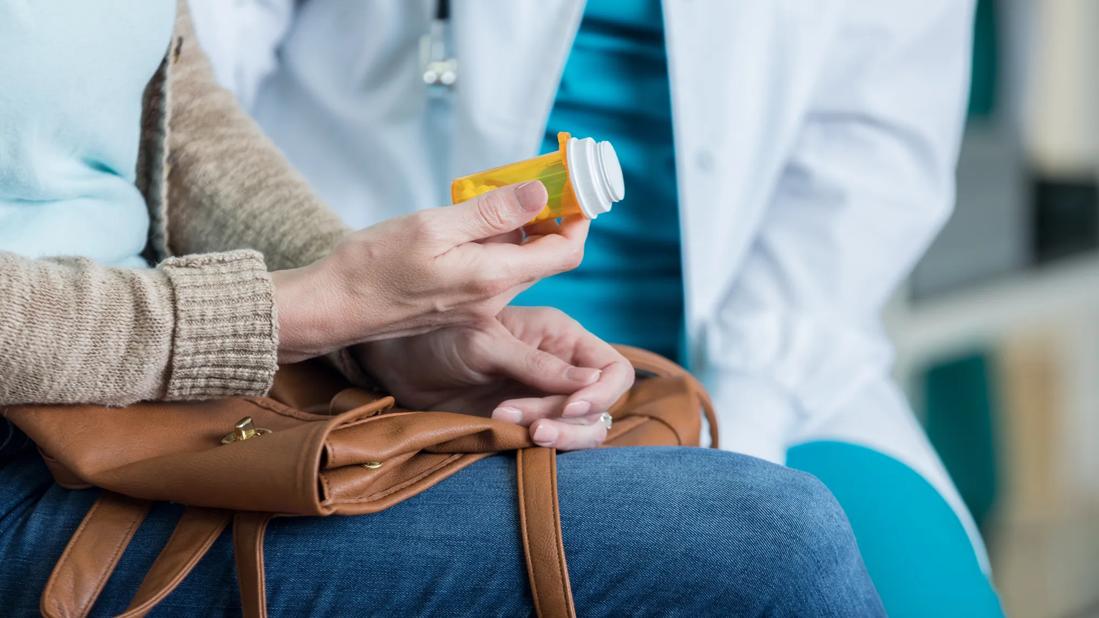Alcohol is a depressant and can interfere with your sleep, mood and more

Image content: This image is available to view online.
View image online (https://assets.clevelandclinic.org/transform/812e1835-169d-4389-babb-96f6663b61f7/pharmacist-medication-823870532)
Patient holding prescription medication bottle, talking to healthcare provider
If you take antidepressants, you may have been advised to avoid alcohol.
Advertisement
Cleveland Clinic is a non-profit academic medical center. Advertising on our site helps support our mission. We do not endorse non-Cleveland Clinic products or services. Policy
But why? Is a glass of wine really all that bad? What about just one night of heavy drinking?
Psychiatrist and substance use disorder specialist David Streem, MD, shares the trouble with mixing alcohol and antidepressants.
Antidepressants help manage depression by making small, steady changes in your brain chemistry. But alcohol can undo all that work.
“Alcohol causes very large changes in how your brain functions,” Dr. Streem explains. “Alcohol is like a tidal wave that wipes out that quiet stream of progress made with antidepressants.”
Alcohol can keep your medication from working properly, affect your sleep and, in rare cases, lead to dangerous spikes in blood pressure.
Let’s look at some of the specifics.
Drinking is counterproductive to treating depression.
Alcohol is a depressant. It slows down your central nervous system. That’s why alcohol affects your judgment and coordination and makes you sleepy and relaxed.
Similar changes can happen when you have depression.
Antidepressants aim to undo the effects of depression. But their work gets canceled out when your system is flooded with alcohol.
“Alcohol does the opposite of what antidepressants are trying to achieve,” Dr. Streem confirms.
Advertisement
And the effects can linger. Depending on how much you drink, alcohol can affect your system days after you put down your glass. Even when you stop feeling the effects, alcohol still affects your brain chemistry.
Going back to Dr. Streem’s tidal wave example, there’s a significant amount of cleanup your body has to do after it gets pummeled with alcohol.
Sure, having a few drinks can make you extra sleepy. But alcohol doesn’t encourage quality sleep. And when you’re managing depression, getting good sleep (and plenty of it) is important.
Depression is often associated with sleep disorders.
And alcohol can further disrupt your sleep cycles. Drinking suppresses REM sleep, which is important for regulating mood, memory and brain function. And alcohol can keep you from sleeping through the night.
“People will say, ‘I drink and then I fall asleep.’ That’s true — alcohol is a sedative,” Dr. Streem acknowledges. “But often, within a few hours, they wake up and can’t get back to sleep.”
That means fewer ZZZs that your body and your brain need to help manage depression.
“If you’re further disrupting your sleep cycles with alcohol, that complicates our efforts to normalize your sleep and your brain function,” he points out.
It’s generally recommended to limit alcohol if you take any kind of antidepressant. But if you take MAOIs (monoamine oxidase inhibitors), the effects of alcohol can be especially dangerous.
“MAOIs have become rarer because they have many dangerous drug interactions,” Dr. Streem reports. “But for anyone who does take them, avoiding alcohol is very important. Alcohol can cause your blood pressure to spike dangerously high when you take an MAOI.”
The risks of drug interactions between alcohol and newer classes of antidepressants, like SSRIs (selective serotonin reuptake inhibitors), aren’t as dramatic. But it’s still not a good mix.
You shouldn’t drink any alcohol if you take an MAOI or if your provider has told you it’s not safe for you to drink.
Dr. Streem also recommends abstaining from drinking when you first start taking SSRIs.
“It’s best to avoid all alcohol and other habit-forming substances for at least the first four to six weeks,” he advises. “During that time, you’re trying to figure out whether the medication even works for you. You don’t want to muddy the waters by introducing the effects of alcohol.”
Beyond that, how much is too much?
“One heavy drinking episode per month isn’t going to have a significant impact on most modern antidepressants,” Dr. Streem says. “But drinking once a week or drinking every day — that could cause problems.”
Advertisement
And if you’re planning to have a drink, don’t skip taking your medication. Antidepressants rely on consistent daily use to keep your brain chemistry balanced. Missing doses can undo your progress.
If you’re finding it difficult to curb your drinking or stop altogether, or if you’re concerned about your relationship with alcohol, help is available. Talk with a healthcare provider, local resources, family and friends, or reach out to the 988 crisis lifeline (U.S.).
Advertisement

Sign up for our Health Essentials emails for expert guidance on nutrition, fitness, sleep, skin care and more.
Learn more about our editorial process.
Advertisement
Slight increases are somewhat common from either the medication or changed habits
Some medications may result in a few lost pounds, but weight gain is far more common
The medications target different chemicals in your brain to improve mood
Both medications are first-line treatments for depression and other mood disorders
A psychiatrist shares tips for going off your depression medication
Drinking alcohol is known to raise your risk of various types of cancer
Long-term, heavy alcohol use can double your risk of chronic kidney disease
OTC meds, rest, fluids and an anti-inflammatory diet can help you get through big and small weather changes
Prioritize your health by managing stress, strengthening your social connections and getting quality sleep
Bolsters, blankets, pillows and blocks can offer extra support, stability and comfort
Allergies, postnasal drip, asthma or reflux could be to blame for a cough that won’t quit